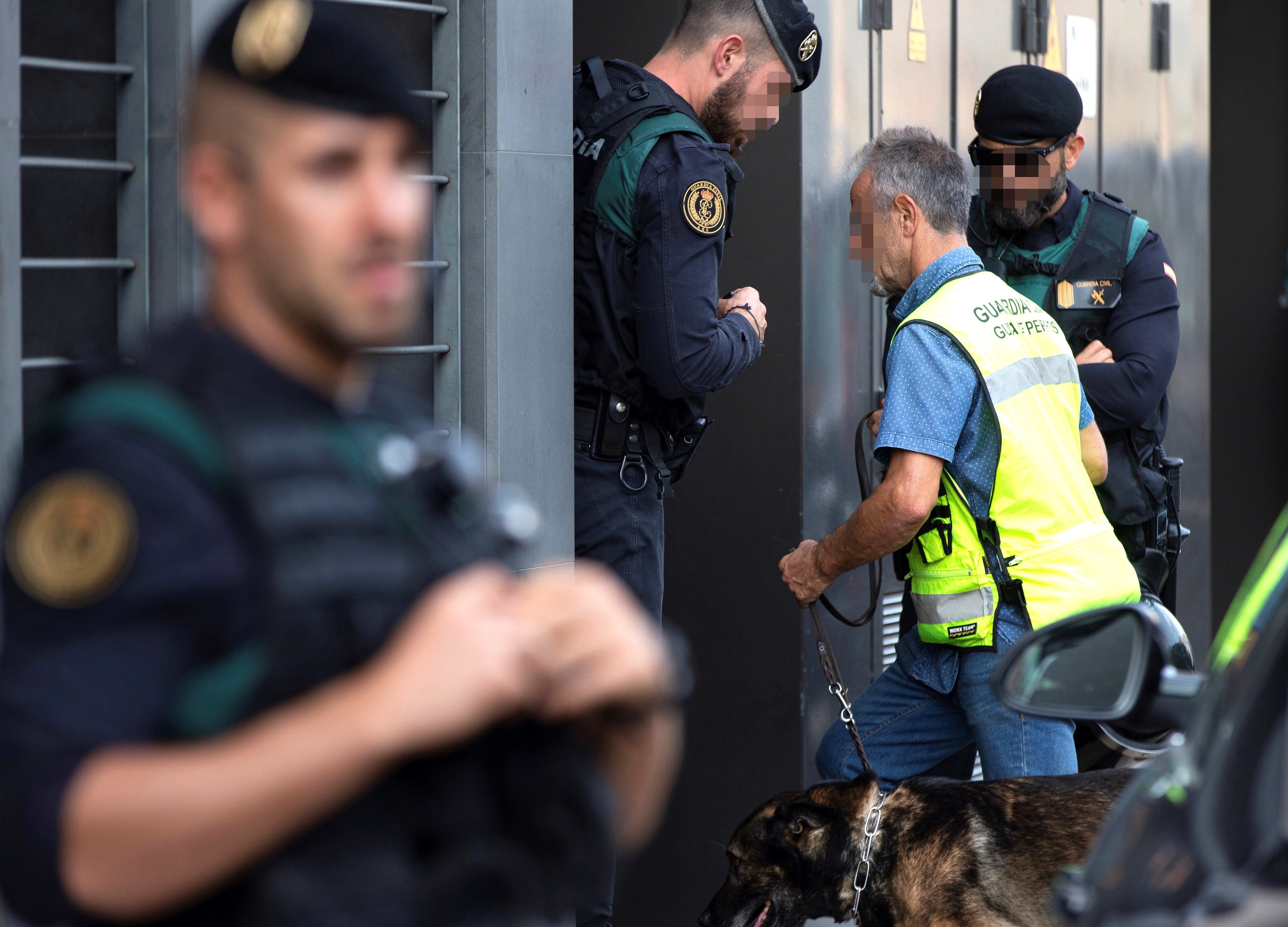They're a bit forgetful. The six Civil Guard officers who took part in the investigation of thirteen Catalonia residents who were members of pro-independence CDR protest groups and were accused of terrorism in 2019 in the so-called Operation Judas, have failed to clarify the origin of the investigation or why it was undertaken. The officers testified this Monday before the judge of investigatory chamber number 6 of the National Audience, at the request of the Alerta Solidaria lawyers who represent the majority of the defendants, to clarify what prompted them to begin monitoring the men and listening in to their communications. "It was a sham, and it confirms that this case is a state operation against Catalan independence," asserted lawyer Xavier Monge.
The investigation of the CDR case is almost complete, but the defence lawyers lodged appeals because judge Manuel García-Castellón did not provide all the documentation, such as the full audio of the monitored conversations. In March, the appeals chamber of the National Audience ruled in favour of the Alerta Solidaria lawyers for the third time, and accepted their claim that in order to guarantee their clients' right to a defence they needed to be able to interrogate the officers who carried out the initial investigation. According to the lawyers, however, three of the officers explained that they only carried out office work, others did not remember the name of the person they were following, and the person who was the investigator only replied "I don't remember, I don't know". Lawyer Xavier Monge asked the judge to caution the witness that she could be bearing false witness, but García-Castellón told him that he could not return her memory, the Alerta Solidaria lawyer explained. And finally, the officer who was head of the Civil Guard's operations and information service in Catalonia from September 2017 to May 2021 did not give details of anything either, and made an appeal that some things could be under order of confidentiality, when this is not the case. "What a sham!" said Monge.
Rights violations
The defence lawyers reiterated their demand for the documentation that they are still missing from the case, although the criminal chamber of the National Audience had ruled in their favor, and the court replied that they will be provided with the resolution in which the bugging of communications and monitoring were approved, which could reveal the when, how and why of the investigation, although, in fact, this is not certain: "The judge is showing repeated disobedience to the decisions of the court," said Monge. Judge García-Castellón has been maintaining an investigation secret since 2017, in addition to having another investigation into the organizers of the Democratic Tsunami, which is also secret and in which pro-independence politicians David Madí (of CDC) and Xavier Vendrell (ERC) are known as the key figures under investigation, as the judge of another Barcelona investigating court, number 1, called for their appearance in connection with the Volhov case, in which he is investigating them.
Last September, the judge prosecuted these CDR activists for membership of a terrorist organization and, in the resolution, uses the same expression as the prosecutor when he stated that in the autumn of 2017, as the independence process in Catalonia did not prosper, “a part of the population felt frustrated” and some of them, like the defendants, opted for violent actions. One of these actions was allegedly to occupy the Catalan Parliament, through a mission given to them by a so-called Catalan CNI spy agency, which would let them in through the front door, and that the operation would have a budget of about 6,000 euros. Nothing has been clarified in regard to this claim. And some of the CDR members are being prosecuted for possession of precursor material for explosives.
Of the thirteen initial defendants, last March the National Audience, due to medical reasons, closed the case against Xavier Duch of Sabadell, who had been arrested on September 23rd, 2019, along with eight other people in Operation Judas (later expanded through four more arrests). Now, the defence lawyers are studying whether they should ask for more evidence, and whether they will, in the end, receive what they have already demanded.

